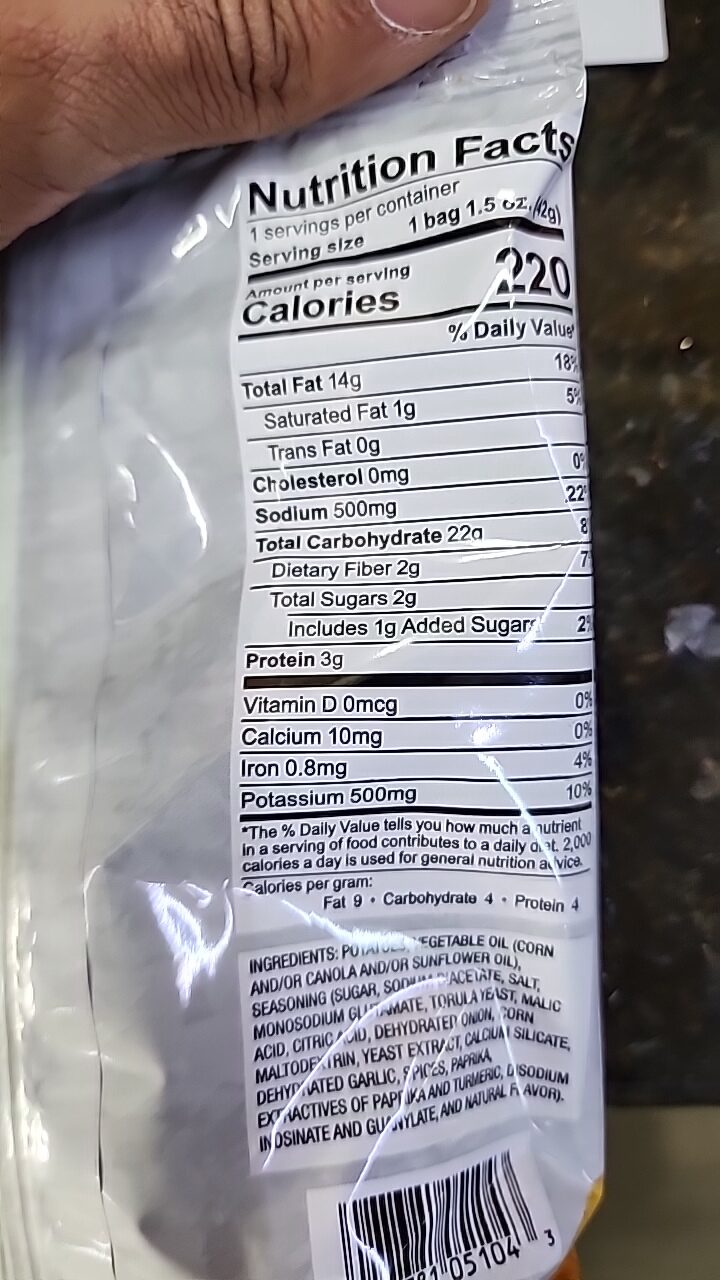
Barcode: 081381062108
calories
HALAL
📝 Reason: The product does not contain any Haram ingredients as per the provided lists. However, some ingredients like ‘seasoning’, ‘spices’, and ‘natural flavor’ are marked as Doubtful due to lack of specific details or Halal certification. The absence of Haram ingredients and E-codes confirms the product’s Halal status.
🏷️ Category: Snacks
📄 Certificates: Vegetarisch, Vegan
Ingredients:
Details
Understanding the Halal Status of calories
When it comes to food products, the question of Halal status is paramount for many consumers. The product in discussion, calories, holds the Halal certification, making it suitable for those adhering to Islamic dietary laws. This comprehensive review aims to provide all the necessary details surrounding its ingredients, thereby confirming its Halal status.
Ingredient Analysis
The primary ingredients listed for calories include:
- Potato
- Vegetable oil
- Corn and/or canola and/or sunflower oil
- Seasoning
- Sugar
- Sodium diacetate
- Salt
- Monosodium glutamate
- Torula yeast
- Malic acid
- Citric acid
- Dehydrated onion
- Corn maltodextrin
- Yeast extract
- Calcium silicate
- Dehydrated garlic
- Spices
- Paprika
- Extractives of paprika
- Turmeric
- Disodium inosinate
- Disodium guanylate
- Natural flavor
Let’s categorize and analyze each of these ingredients to better understand their Halal status.
Detailed Breakdown of Ingredients
1. Plant-based Ingredients
Ingredients like potato, corn, and various oils (canola and sunflower) are plant-based and generally considered Halal. This includes:
- Potato: A staple in many diets, potatoes are entirely Halal.
- Vegetable oil: Extracted from various plant sources, typically Halal.
- Corn: Plant-derived and thus Halal.
2. Additives and Seasonings
Some components like seasoning, spices, and natural flavor are highlighted as potentially doubtful. This means while they may not inherently contain Haram components, they lack specific Halal certification:
- Seasoning: A generic term that can vary greatly. Check for certification.
- Spices: Similar to seasoning, spices may require individual scrutiny.
- Natural flavor: This vague term also necessitates careful investigation.
3. Synthetic and Mineral-based Ingredients
The following ingredients include sodium diacetate, monosodium glutamate, disodium inosinate, and disodium guanylate. They’re predominantly synthetic and seen as Halal unless sourced from Haram substances:
- Sodium diacetate: Commonly derived from vinegar.
- Monosodium glutamate (E621): Widely accepted as Halal in various forms.
- Disodium inosinate (E627) & Disodium guanylate (E628): Synthetic flavor enhancers, generally Halal.
4. Other Ingredients
Other plant-based components such as salt, sugar, and malic and citric acids are well-established as Halal. Their mineral or plant origins ensure compliance with dietary laws:
- Sugar: Derived from plants, appears Halal.
- Malic acid & Citric acid: Naturally derived acids, generally accepted as Halal.
Conclusion
The product calories stands strong in its Halal certification as its ingredients predominantly consist of plant-based and synthetic components. The few that raise doubts, specifically concerning seasoning and natural flavor, still lend themselves to investigation rather than outright rejection. Consumers of Halal products can feel confident choosing calories as a safe snack option, bolstered by clear ingredient transparency and the absence of confirmed Haram elements. Always verify specific ingredient sources where necessary and seek products verified with reputable Halal certifications whenever possible.
